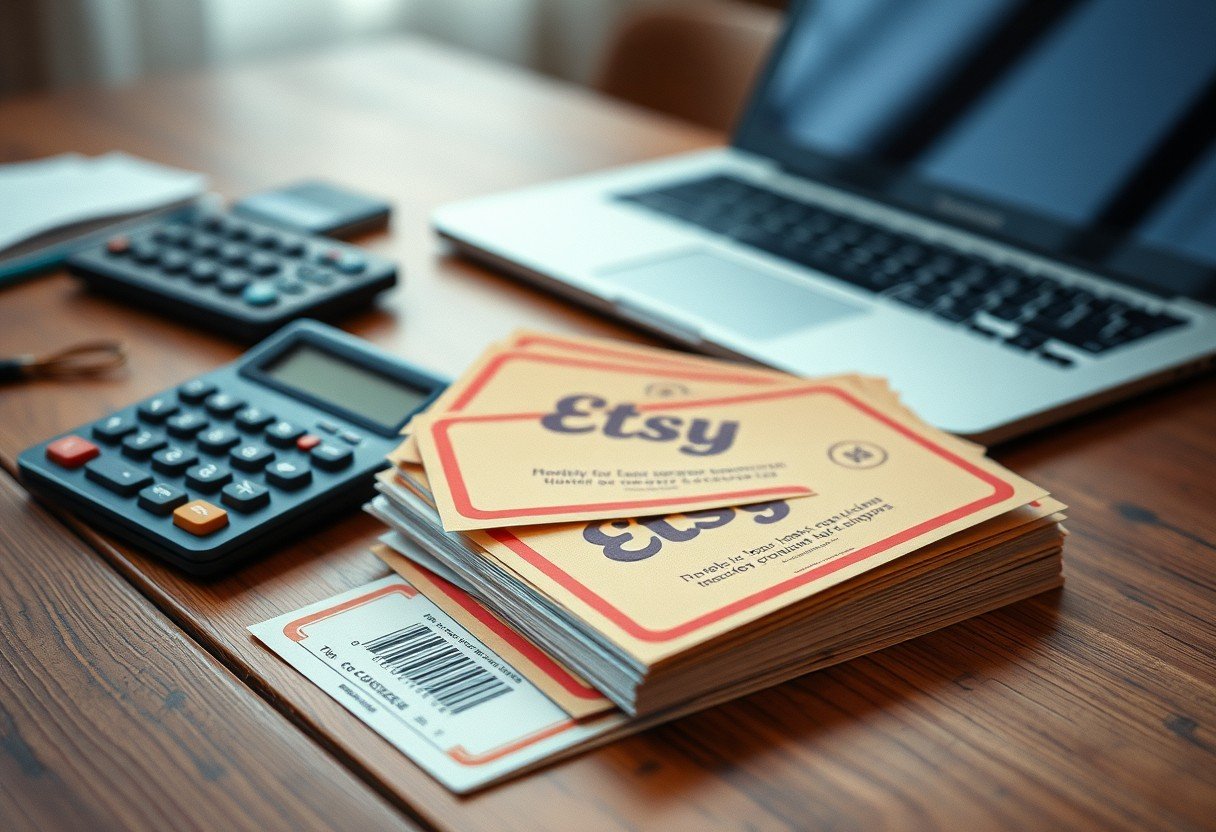As shoppers and creators become more conscious of their impact, many ask: is Etsy truly an ethical marketplace? This platform for handmade and vintage goods connects buyers with independent artisans globally. However, to decide if it aligns with your values, you must look at its seller policies, environmental initiatives, and the challenges it faces, ensuring your purchases support the principles you care about.
Understanding Etsy’s Business Model and Fees
Etsy operates as a global online marketplace connecting independent sellers directly with buyers. This model is built to support small businesses and artisans who create unique, handcrafted, or vintage items, setting it apart from mass-market e-commerce giants. The platform fosters a community where the story behind a product is often as important as the product itself.
To keep the marketplace running, Etsy charges sellers several fees. These fees are a crucial part of its revenue and are important for sellers to factor into their pricing. For each item listed, there is a $0.20 listing fee. When an item sells, Etsy takes a 5% transaction fee on the total sale price.
Additionally, a payment processing fee is applied, which varies based on the seller’s location. Despite these costs, many creators find the platform valuable because it provides access to a massive global customer base without needing a large marketing budget.
The Positive Impact on Small Businesses and Artisans
One of Etsy’s greatest strengths is its role in empowering small businesses. It gives individual artisans and crafters a platform to reach customers worldwide, which would be incredibly difficult and expensive to do on their own. When you buy a handmade item on Etsy, you are often directly supporting an entrepreneur and their family.
This support extends beyond just financial transactions. It helps sustain craftsmanship and traditional skills that might otherwise be lost. By choosing to buy from these sellers, you contribute to local economies and promote a culture of individuality over mass production.
Many sellers on the platform also adhere to fair trade principles, ensuring that everyone involved in the creation process is compensated fairly and works in a safe environment. By consciously supporting businesses that are transparent about their labor practices, you contribute to a more equitable global marketplace. This empowers communities and helps foster sustainable economic growth for artisans around the world.
Ethical Challenges: Mass Production and Rising Fees
Despite its mission to support handmade goods, Etsy has faced criticism over the years. A significant concern is the growing presence of mass-produced items on the platform. Some sellers resell items bought in bulk from manufacturers, which directly undermines the artisans who create genuinely handmade products. This can dilute the platform’s original purpose and make it harder for buyers to find authentic, one-of-a-kind goods.
Another major point of contention for sellers is the issue of rising fees. While fees are necessary to maintain the platform, increases in transaction fees and the introduction of mandatory offsite ad fees have put a financial strain on many small businesses. For some creators, these rising costs make it challenging to maintain a profitable shop, leading them to question if the platform still has their best interests at heart.
Etsy has policies in place to combat the sale of non-handmade items, but enforcement can be challenging. The company uses a mix of automated systems and user reports to identify violations. Sellers found to be non-compliant may face warnings or even have their accounts suspended. However, the sheer volume of listings makes it difficult to catch every violation.
Considering the Environmental Footprint
For the eco-conscious consumer, the environmental impact of products is a top priority. Many Etsy sellers are committed to sustainability, but the overall footprint can vary widely from shop to shop. Making informed choices allows you to support sellers who prioritize the planet.
Look for sellers who are transparent about where they get their materials. Sustainable sourcing is key to reducing environmental harm. This includes using:
- Recycled or upcycled materials
- Renewable resources like bamboo or cork
- Locally sourced components to reduce transportation emissions
Packaging and shipping practices also play a huge role in a product’s overall environmental impact. Many Etsy sellers have adopted eco-friendly habits, such as using recyclable or biodegradable packaging materials. Some even offer carbon-neutral shipping options. By choosing sellers who use minimalistic packaging or reused materials, you can help reduce landfill waste and support businesses committed to sustainability.
How to be a Responsible Shopper on Etsy
As a buyer, you have the power to shape the marketplace by making informed and ethical purchasing decisions. Your choices can support genuine artisans and encourage sustainable practices across the platform. The key is to do a little research before you click “buy.”
Always start by reading a seller’s reviews and shop policies. This gives you insight into their product quality and customer service. Pay close attention to the product descriptions, looking for details about how items are made and what materials are used. Genuine artisans are often proud to share their process and the story behind their work. If information is missing, don’t hesitate to message the seller directly to ask questions about their production methods or sourcing practices. This simple step can help you verify that you are supporting an ethical and authentic creator.
Etsy vs. Alternative Ethical Marketplaces
While Etsy is a giant in the handmade space, it’s not the only option for ethical shoppers. Several other platforms cater specifically to consumers who prioritize fair trade, sustainability, and supporting independent artists. Comparing these alternatives can help you find the best fit for your values.
Here is a quick comparison of Etsy with some of its competitors:
| Marketplace | Ethical Focus |
|---|---|
| Etsy | Supports handmade and vintage items, but lacks strict regulations on sellers. |
| Artfire | Focuses on handmade goods with a commitment to ethical practices. |
| Big Cartel | Designed for independent artists and makers, promotes small businesses. |
| Fair Trade Marketplace | Ensures fair wages for producers and emphasizes sustainable production. |
The rise of ethical consumerism means more platforms are emerging to meet this demand. By exploring these alternatives, you can make informed choices that align with your values and promote fair practices in the retail landscape.
Frequently Asked Questions
Is everything sold on Etsy handmade?
No, not everything is handmade. Etsy’s marketplace also includes vintage items (which must be at least 20 years old) and craft supplies. However, there are concerns about mass-produced items being improperly listed as handmade, so buyers should read descriptions and reviews carefully.
How can I find sustainable and eco-friendly sellers on Etsy?
You can find eco-conscious sellers by looking for the “Etsy Sustainability” badge on shop pages. You can also search for keywords like “recycled,” “sustainable,” or “eco-friendly” and read item descriptions for details on materials and packaging.
What does “fair trade” mean in the context of Etsy?
Fair trade means that artisans receive proper compensation for their work and operate in safe conditions. While Etsy doesn’t certify sellers as “fair trade,” many individual shops follow these principles by being transparent about their labor practices and paying fair wages to any workers they employ.
How does Etsy handle sellers who violate its policies?
Etsy has a dedicated team that monitors listings and investigates reports of policy violations. Depending on the severity of the infraction, a seller may receive a warning, have listings removed, or face account suspension to maintain the integrity of the marketplace.
Does Etsy do anything to offset its environmental impact?
Yes, Etsy has initiatives to promote sustainability. The company offsets 100% of carbon emissions from shipping and packaging for every order. They also provide sellers with resources and guidance on using eco-friendly packaging materials.









Leave a Comment